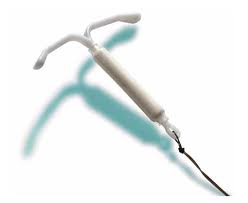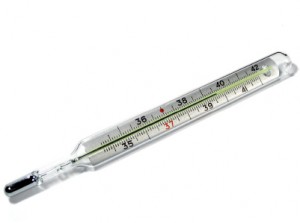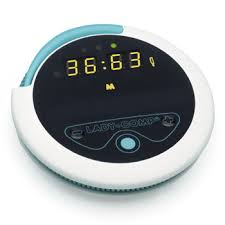A Mothers Guide to Safe Contraception
Recent recalls and lawsuits against birth control manufacturers has left many women wondering about the safety of their oral contraception. According to the Center for Disease Control birth control pills are the leading contraception for women between the ages of 15-29 and over 17% of women aged 15-44 use the pill. Besides using it for contraception many women also use hormone based birth control pills for other reproductive health conditions including PMS, endometriosis and cysts; these are all symptoms I believe can be fixed through diet and proper supplementation.
Recently many side effects have been making news. Yaz, a popularly prescribed oral contraceptive which is also marketed under the names Yasmin and Ocella, has pending lawsuits for being linked to serious side effects including pulmonary embolism caused by an increased risk of blood clots, heart attacks and sudden death. Johnson and Johnson also just recalled the birth control Cilest because the hormones weren’t being released properly.
My hope is that these recent headlines will help convince women to find a safer form of birth control. It’s no secret that many women choose this because it’s convenient. So how exactly does it work and why is it dangerous? The hormones suppress the release of natural hormones that trigger ovulation and stimulate the production of thick cervical mucus, which prevents the survival of sperm and sperms ability to travel to an egg in the fallopian tube.
It can even affect your sense of smell which can influence the kind of partner you choose and decrease sex drive.
Oral Contraception increase cancer risk.
According to the National Cancer Institute the risk of breast, cervical and liver cancer is greater in women who have used oral contraception. The risk of breast cancer being even higher for those that started birth control as teenagers. Just 5 years of being on birth control increases your chances of cervical cancer and women who used it for 10 years or longer are 4 times more likely to contract cervical cancer. Why don’t doctors disclose this information when prescribing the pill and why do they prescribe it to teenagers as young as 15?
According to the World Health Organization women with HPV (1/3 of women in their twenties are affected with HPV) who have taken the pill for 5-9 years are almost 3 times more likely to develop cervical cancer. Those with HPV who have taken the pill for ten or more years are 4 times more likely than non pill users to develop cervical cancer.
No. low hormone or progestin based birth control pills are not any safer. period.
What if I’m not worried about cancer?
I can’t say that I know anyone that wouldn’t be worried about increasing their cancer risk but there are many other side effects besides cancer that may scare you.
The pill can aggravate insulin resistance and increase your risk for diabetes and heart disease.
Some more side effects of high estrogen levels in the body include: weight gain, low sex drive, thyroid dysfunction, fluid retention, increased pain with intercourse, fibrocystic breasts, ovarian cysts, uterine fibroids, headaches and migraines, atherosclerosis, gallbladder disease, osteoporosis, vaginal infections, depression, panic attacks, low self-esteem.
What about other hormone based birth control?
Oral contraception isn’t the only hormone based contraception. Other hormone releasing forms or birth control such as rings (NuvaRing), pills, patches or implants all have the same effect as oral birth control.
IUD’s carry a lot of risks such as uterine perforation which in some cases leads to a hysterectomy, and pelvic or ovarian infection and abscesses. The use of all IUD’s is also associated with increased incidence of Pelvic Inflammatory Disease. Women that use an IUD for over 3 years are twice as likely to have a tubal pregnancy; this ectopic pregnancy is the leading cause of maternal death in the U.S.
The Depo Shot. Women under the age of 25 who have had the shot have a 190% greater chance of getting breast cancer and those using it for more than 5 years have a 430% greater chance of developing cervical cancer.
Vasectomy. Sadly, not safe either. Men who have vasectomies develop anti-sperm antibodies so their bodies begin to recognize sperm as the enemy which can lead to a higher risk of autoimmune disease and they also have a higher risk for developing prostate cancer.
Tubal ligation is not always effective and if pregnancy does occur there is a much higher incidence of it being an ectopic pregnancy, which as I mentioned previously is the leading cause of maternal death in the U.S.
So, what’s a girl to do?
There are plenty of other non-hormonal methods of birth control though not as convenient as popping a pill, but much safer, and they won’t affect your future fertility either. You can be fitted for a diaphragm, cervical cap, or sponges. Their rates of effectiveness are a little bit lower (anywhere from 89-91% effective when used properly) but they won’t damage your health. Many women are afraid they’ll insert something incorrectly and end up with an unplanned pregnancy.
Natural Family Planning
If you think you just look at a calendar and think you know when you ovulate, , and have a regular cycle you can abstain for 5 days before ovulation (that’s how long sperm can live and very quietly wait for an egg to be released) and the day of ovulation. That has about a 75% success rate.
Natural Family Planning involves taking your temperature and checking for mucous. Guessing when you ovulate isn’t a method I recommend.
The temperature method involves taking your body temperature every morning and figuring out your body’s rise in temperature after ovulation. This may be tricky when you’re sick or very sleep deprived since it may affect your temperature but when combined with the mucus method is 98% effective.
The mucus method involves getting to know your cervical mucus and noting the changes in mucus that occur due to changing estrogen levels throughout the month.
The Creighton Model. Involves charting biological markers (temperature and mucous) to determine peak fertility. Practitioners teach this method which is nice so you can ask questions and make sure you fully understand the process of charting mucus and temperature.
Technology meets Natural Family Planning
While I know plenty of women that use an old fashioned thermometer, pen and paper to chart, technology has risen to the occasion to help women keep track of their temperatures to help avoid conception (or to track ovulation to help women that are trying to conceive).
The Lady Comp. This is what I’m currently using and I love it. It’s basically a high-tech thermometer that takes your temperature upon rising (it gives you a 6 hour window so you don’t have to wake up at the exact time every day) and it tracks your temperatures and gives you a green light or a red light depending on where you are in your cycle. It gets to know your temperature and figure out when you ovulate and give you a red light in the days leading up to ovulation so no sneaky sperm can hide out and wait for an egg to drop. It is pricey but I plan on using mine for a very long time and it has a 99.3% effective rate when used properly. You can literally just take your temp and go right back to sleep. There is also a Baby Comp version that can help you try to conceive and figure out whether or not you’re actually ovulating. I really love it and think it’s worth every penny. I also love that should I choose to try getting pregnant again it’ll tell me the optimal time for conception.
Ova-Cue Fertility Monitor. It tracks the electrolyte levels in your saliva to figure out your time of peak fertility. May be a good choice for nursing moms who haven’t gotten their cycles back yet. It has a 98.3% effective rate.
Fertility Friend App. Of course there’s an app for that, and it’s free. You can get it on your smart phone or log in the old fashioned way and log your daily temperatures. It is supposed to pinpoint your fertile days to help you conceive, obviously by avoiding the fertile days you can avoid pregnancy. There’s a free online course on the website to help you learn about charting and how to use it correctly.
What if I take birth control for other reasons?
Many women, and teenage girls, are prescribed birth control for a host of other ailments from acne, endometriosis, cysts, PMS, PMDD, excessive bleeding, or plain old just wanting to skip a period. Increasing your estrogen levels is only going to wreak long term havoc on your body and is unnecessary. Changing your diet and finding a health care practitioner (like myself) to set up a supplement plan is your best bet. I can’t make you skip a period but hopefully I can help you understand why you shouldn’t make yourself skip a period because you don’t want the hassle on your vacation to the beach.
I know this is such a personal and important subject for so many women. It took me a very long time and a lot of research to finally decide what to do and I hope this information helps you make a decision you feel comfortable with.














